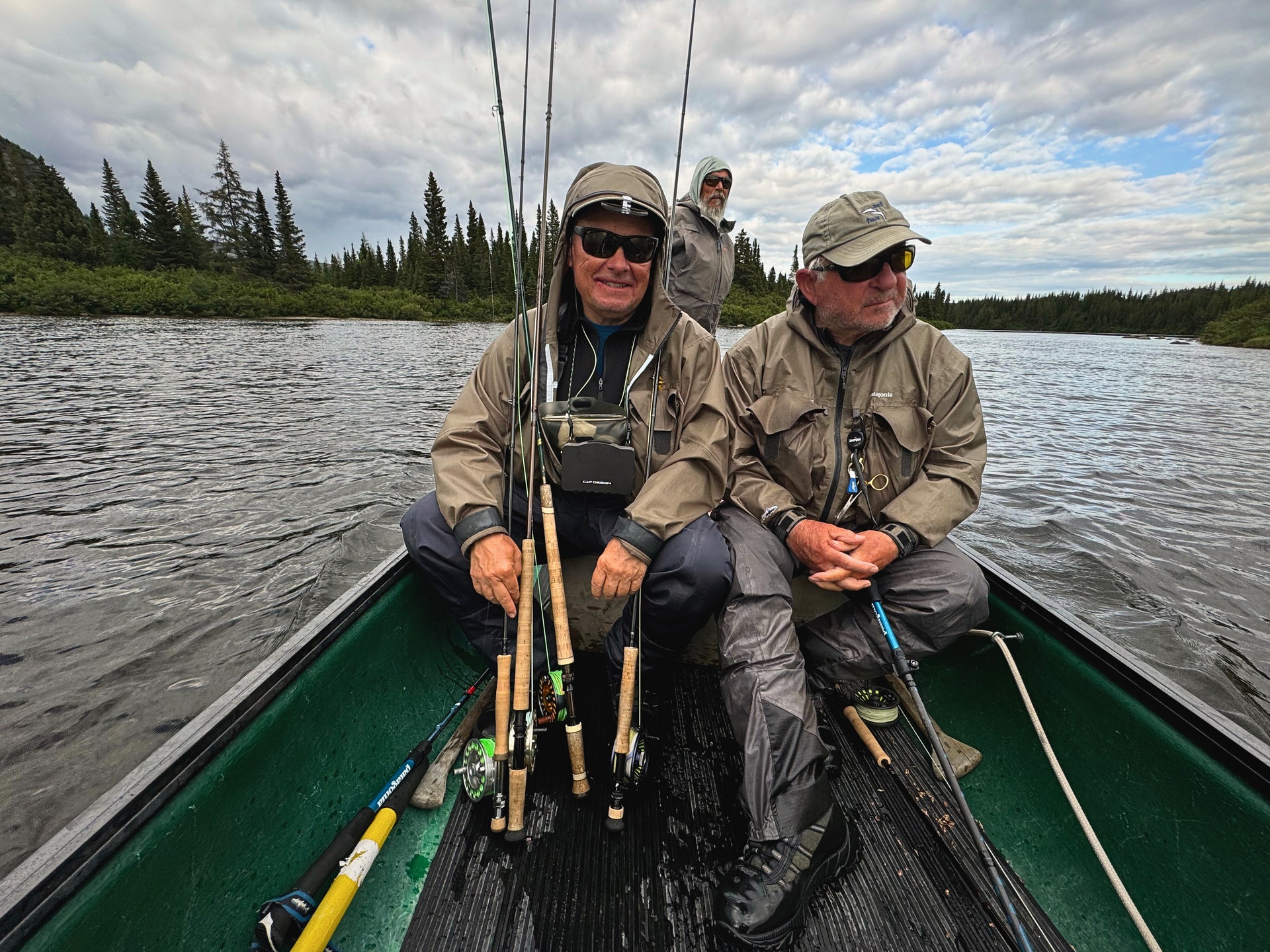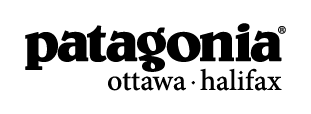
In dialogue with Yvon Chouinard: Discussing the distressed future of Atlantic salmon with conservation advocates
By: Miles Anderson
Photos: Mauro Mazzo
If you’re passionate about the outdoors, you’ve likely encountered the name Yvon Chouinard by now. As a climber, surfer, environmental activist and founder of Patagonia, Chouinard has devoted himself to conservation with a mission: to leave the world better than he found it.
Chouinard’s many environmental commitments includes but is not limited to: Atlantic Salmon Conservation.
This past summer, I had the chance to sit with Yvon with some fresh lobster by a campfire, where we discussed why Atlantic salmon conservation is crucial.
“Atlantic salmon is a real keystone species that has been around for millions of years, and they are going on their way out,” says Chouinard. Designated as endangered or threatened across much of its native range, the Atlantic salmon is facing a steady decline that’s caught the attention of fishing communities and conservationists alike.
The current state of the Atlantic salmon population is concerning, brought to light by the fishing communities along the East Coast, and now NGOs and large business owners have taken upon themselves to address it.
“You’ve got to give money to organizations that you can relate with, and I’ve been a fisherman all my life, I really care about fish,” Yvon added.
Yvon might not have intended to become a businessman, but he has dedicated his resources to serving a higher purpose. “We started this 1% for the planet thing, just in America there are over 30,000 companies making fishing gear, not retail stores, just making fishing gear, and only 13 belong to 1%”.
One Percent for the Planet—a global network of companies donating at least one percent of their revenue to environmental causes—is one way Yvon has channeled his care for the aquatic world. Patagonia has been on board since 1985, pledging 1% of its sales to conservation efforts long before this movement took off.
For seasoned anglers, rivers with wild Atlantic salmon are sacred spaces. Not only do they offer picturesque wilderness but also support a delicate ecosystem. However, the salmon populations are in danger, and not everyone fishing these waters considers the impact on conservation.
“It’s one of the cheapest fish on the market, they couldn’t care where it comes from,” said Chouinard. “If I come out with a new T-shirt and someone doesn’t like the colour, they aren’t going to buy it, no matter how responsibly I made that T-shirt”.
Joining us fireside was Louie Porta, the new president and CEO of the Atlantic Salmon Federation (ASF). With over 25,000 members, ASF is dedicated to restoring wild Atlantic salmon populations through research, river restoration, and legislative advocacy.
“There are very few extractive industries that move at a speed that is commensurate with sustainability,” said Porta. “Although you can make many arguments that ocean farming is not as harmful as land, just because something is less unsustainable doesn’t make it sustainable.”
Throughout the past year, the ASF’s efforts were centred around three pillars: conserving and restoring wild salmon, advancing salmon science, and enhancing the ASF.
Former ASF president and CEO Bill Taylor mentioned “There are 50,000 Atlantic salmon anglers in North America, we have 20% of those members”.
The New Brunswick-based organization recently concluded multiple studies that were designed to determine if Atlantic salmon were present in the coasts off eastern Newfoundland where oil and gas exploration and extraction is occurring. Salmon were caught by angling and fitted with external tags that record position, depth, and water temperature. At a pre-programmed time, the tags release from the fish, rise to the surface and transmit stored data to satellites passing overhead, as detailed in ASF’s 2023 impact report.
These studies also show that changing ocean conditions as a result of climate change are causing a decline in Atlantic salmon populations everywhere that has intensive open net-pen farming infrastructure, except for one particular country that is taking charge.
“If you look at the population of wild Atlantic salmon from the North Atlantic, It’s declining in Iceland, Norway, Scandinavia, Scotland, everywhere that there is intensive open net-pen salmon farming, populations are going down the tube,” said Bill. “In Canada, they are actually stable, and in Northern Canada increasing”.
I asked Yvon and Louie what might account for Canada’s relative success. Is it sustainable practices or simply an untapped market for salmon farming?
“We’re making all the same mistakes that we make with on-land farming. With shrimp farming and cutting down mangroves, it’s absolutely wrong but can be done in a right way and that’s what we need to work on,” Yvon says. “I am particularly interested in giving an alternative to these salmon farms. There is an alternative, I believe, in market forces, and market forces is a solution”.
Salmon farms in coastal waters have severe negative impacts on the environment, especially on the wild Atlantic salmon population, due to the toxins released from pesticide use, diseases harboured in the netted populations, and escapees interbreeding with the natural populations.
“Is it for every new operation, 10% of total revenue goes to on-land salmon farming? Is it for 1 that goes in 2 comes out? What are those relationships that you can make once you get into the nuts and bolts of an industry that continues to set itself up,” said Porta, pondering the evolution of Salmon farming.
With dedicated efforts like those from Patagonia, ASF, and passionate anglers that cherish these waters, there’s hope that future generations will still be able to experience these majestic fish and the resilience of the ecosystems they need to thrive.
